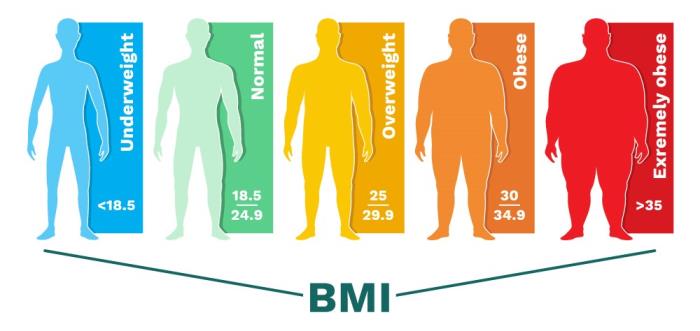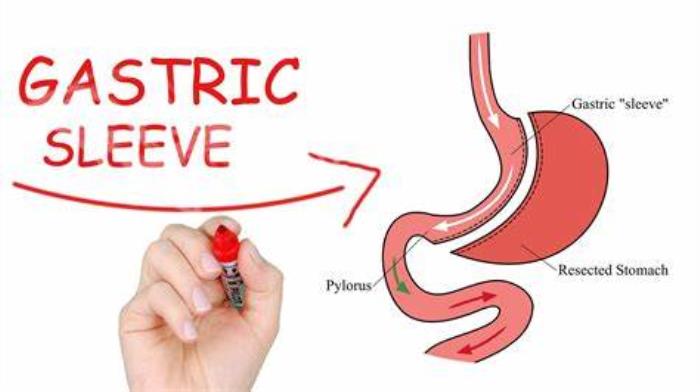Body Mass Index (BMI) is a key factor in determining eligibility for sleeve gastrectomy, a weight loss surgery. Typically, candidates have a BMI of 40 or higher, or 35-39.9 with serious health conditions like diabetes. This surgery reduces the stomach size, leading to significant weight loss and improved health outcomes. Understanding BMI helps healthcare providers tailor treatment plans effectively.
What is BMI (Body Mass Index)?
BMI, or Body Mass Index, is a numerical value derived from an individual’s weight and height, used to categorize body weight as underweight, normal weight, overweight, or obese. It serves as a simple, widely accepted screening tool to assess whether a person has a healthy body weight relative to their height.

How is Body Mass Index Calculated?
BMI is calculated using the formula: weight in kilograms divided by the square of height in meters (kg/m²). This straightforward calculation allows healthcare providers to quickly assess weight status and determine potential health risks associated with various BMI categories.
The Significance of Body Mass Index in Obesity Diagnosis
BMI is significant in obesity diagnosis as it provides a standardized method for categorizing body weight and identifying individuals at risk of obesity-related health issues. It aids healthcare professionals in developing tailored intervention strategies for weight management and health improvement.
Ideal BMI Ranges for Sleeve Gastrectomy Candidates
The ideal BMI range for sleeve gastrectomy candidates typically falls between 30 and 40. Candidates with a BMI over 40 or those with a BMI of 35 or higher along with obesity-related health conditions may also qualify for this weight-loss surgery.
How Does Body Mass Index Affect Surgical Outcomes?
BMI significantly affects surgical outcomes, as higher BMI values can lead to increased risks during and after surgery, including complications and longer recovery times. Therefore, achieving a healthier BMI prior to surgery may enhance overall surgical success and patient safety.
BMI and Health Risks Associated with Obesity
Higher BMI levels are associated with numerous health risks, including type 2 diabetes, hypertension, cardiovascular disease, and certain cancers. Understanding these risks is crucial for individuals with elevated BMI to consider lifestyle changes or medical interventions like sleeve gastrectomy.
The Role of BMI in Determining Eligibility for Sleeve Gastrectomy
BMI plays a critical role in determining eligibility for sleeve gastrectomy, as it is one of the primary criteria used by healthcare providers. Candidates typically need a BMI of 30 or higher, along with a comprehensive evaluation of their overall health and obesity-related conditions.
Understanding the Relationship Between BMI and Weight Loss
The relationship between BMI and weight loss is essential in assessing the effectiveness of weight-loss interventions. A decrease in BMI is often indicative of successful weight loss and improved health outcomes, motivating individuals to maintain healthier lifestyle choices post-surgery.
BMI Changes After Sleeve Gastrectomy Surgery
Post-sleeve gastrectomy, patients often experience significant reductions in BMI as they achieve substantial weight loss. Regular monitoring of BMI after surgery helps assess weight management progress and identify any necessary adjustments in dietary or lifestyle habits.

Limitations of BMI as a Measure of Health
Despite its widespread use, BMI has limitations as a measure of health, as it does not account for muscle mass, fat distribution, or other individual health factors. Therefore, it should be used in conjunction with other assessments to provide a comprehensive evaluation of an individual's overall health.
Alternatives to BMI for Assessing Obesity
Alternatives to BMI for assessing obesity include body fat percentage measurements, waist circumference, and waist-to-hip ratio, which provide more accurate insights into fat distribution and overall health. These methods can help identify individuals at risk of obesity-related complications more effectively than BMI alone.
The Importance of Pre-Operative BMI Assessment
Pre-operative BMI assessment is crucial for evaluating a patient's surgical risk and determining eligibility for procedures like sleeve gastrectomy. It helps healthcare providers establish appropriate weight loss goals and tailor interventions to enhance surgical outcomes and patient safety.
Psychological Considerations Related to BMI and Surgery
Psychological considerations related to BMI and surgery encompass the mental health challenges patients may face before and after sleeve gastrectomy. Addressing issues such as body image, self-esteem, and anxiety is essential for fostering a positive mindset and supporting long-term success.
Monitoring BMI Post-Surgery for Long-Term Success
Monitoring BMI post-surgery is vital for long-term success in weight management and health improvement. Regular assessments allow patients and healthcare providers to track progress, identify potential weight regain, and make necessary lifestyle adjustments to maintain a healthy weight.
How BMI Influences Recovery After Sleeve Gastrectomy
BMI influences recovery after sleeve gastrectomy, as patients with lower pre-operative BMIs often experience fewer complications and quicker recoveries. Understanding this relationship can encourage patients to achieve a healthier weight prior to surgery, enhancing overall surgical success.
The Impact of Lifestyle Changes on BMI After Surgery
Lifestyle changes significantly impact BMI after surgery, as adopting healthier eating habits and increasing physical activity can lead to sustainable weight loss and improved overall health. These changes are essential for maintaining long-term success following sleeve gastrectomy.
BMI and Comorbidities: A Comprehensive Overview
Understanding the relationship between BMI and comorbidities provides a comprehensive overview of health risks associated with obesity. Higher BMIs are linked to various conditions such as diabetes, hypertension, and sleep apnea, highlighting the importance of weight management in preventing these health issues.
The Role of Diet and Exercise in Managing BMI After Surgery
Diet and exercise play a crucial role in managing BMI after surgery, as patients are encouraged to follow a balanced diet and engage in regular physical activity to support weight loss and maintain a healthy lifestyle. These factors are key to achieving lasting results post-sleeve gastrectomy.
Patient Stories: BMI and Success After Sleeve Gastrectomy
Patient stories about BMI and success after sleeve gastrectomy illustrate the transformative impact of the procedure on individuals' lives. These testimonials often highlight the journey of achieving a healthier BMI, overcoming challenges, and experiencing improvements in overall health and well-being.
Best Sleeve Gastrectomy Treatment in India
The Best Sleeve Gastrectomy Treatment in India is performed by expert surgeons who utilize advanced techniques to ensure optimal outcomes for patients, offering a personalized treatment plan tailored to individual health needs.
Best Sleeve Gastrectomy Hospitals in India
The Best Sleeve Gastrectomy Hospitals in India are equipped with cutting-edge technology and facilities, providing top-notch care, including pre-surgery consultations, surgical expertise, and post-operative recovery support to ensure a smooth patient journey.
Sleeve Gastrectomy Cost in India
When considering the Sleeve Gastrectomy Cost in India, patients benefit from affordable and transparent pricing at leading hospitals, which offer cost-effective treatment options without compromising the quality of care.
Best Sleeve Gastrectomy Doctors in India
The Best Sleeve Gastrectomy Doctors in India are highly experienced in performing the surgery, utilizing a patient-centric approach that ensures personalized care, precise surgical techniques, and dedicated follow-up care to enhance recovery.
FAQs About BMI and Sleeve Gastrectomy
What BMI is considered eligible for sleeve gastrectomy?
Typically, a BMI of 40 or higher qualifies an individual for sleeve gastrectomy. Patients with a BMI between 35 and 39.9 may also qualify if they have obesity-related health conditions.
Can I qualify for surgery if my BMI is borderline?
Yes, individuals with a borderline BMI (between 30 and 34.9) may qualify for sleeve gastrectomy if they have significant obesity-related health issues, such as type 2 diabetes or hypertension.
How does sleeve gastrectomy impact my BMI over time?
Sleeve gastrectomy generally leads to significant weight loss, which can result in a notable reduction in BMI over time. Many patients experience a decrease in BMI within the first year post-surgery, contributing to improved health outcomes.
Is BMI the only factor considered for sleeve gastrectomy eligibility?
No, while BMI is an essential criterion, other factors such as overall health, psychological readiness, and the presence of comorbidities are also evaluated to determine eligibility for sleeve gastrectomy.
How can I improve my BMI after sleeve gastrectomy?
To improve your BMI after sleeve gastrectomy, focus on adopting a healthy, balanced diet, engaging in regular physical activity, and attending follow-up appointments with your healthcare team to monitor progress and make necessary lifestyle adjustments.